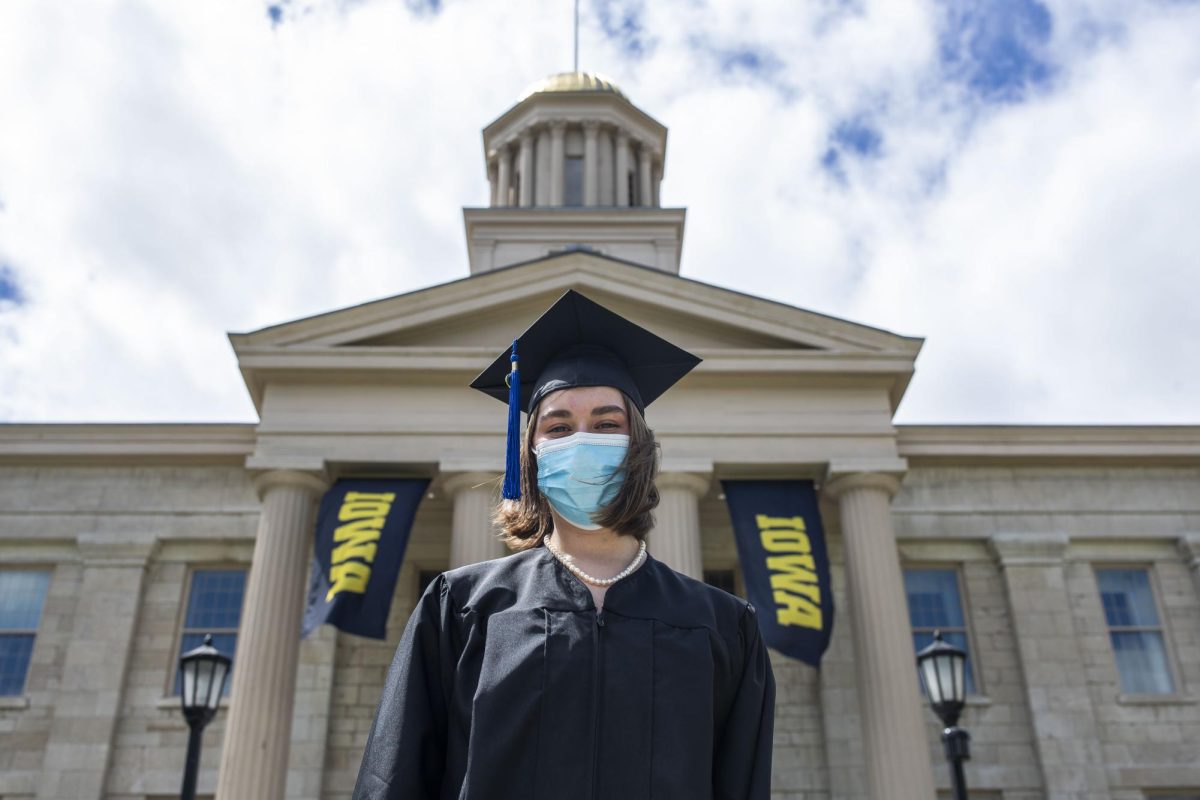By Kit Fitzgerald
A visiting lecturer gave faculty and students a reality check on the effects of alcohol and marijuana.
Jason R. Kilmer spoke at the IMU on Tuesday about many different topics concerning alcohol and marijuana abuse. He presented facts and misconceptions about the popular college pastimes and discussed solutions with staff, faculty, and student leaders.
At the University of Washington, Kilmer works as an Associate Professor in psychiatry and behavioral sciences and assistant director of Health and Wellness for Alcohol and Other Drug Education in the Division of Student Health.
“[Kilmer’s presentation] seemed to fit with our alcohol-harm-reduction plan and help continue our move forward,” said Tanya Villhauer, the associate director for education at UI Student Health and Wellness. “We just thought we would all be energized by having him come to campus.”
She said that even with UI high-risk drinking having decreased for the first time in 25 years, Student Health wants to continue the progress.
“On every college campus, environment breeds high-risk drinking …” Villhauer said. “Iowa has had high rates for 20 years, and we should address that.”
Sara Bultsma, the student safety liaison for the UI Student Government, said the Iowa drinking culture is not very healthy.
Besides a public presentation, Villhauer said, Kilmer also met with student leaders from UISG, the Campus Activities Board, as well as campus tour guides and Orientation leaders. Bultsma was one of the student leaders.
“We talked a lot about the stigma of alcohol on campus and what student leaders can do,” Bultsma said. “He’s not only just a scientist but studies the psychology of the effects of student leaders and what they can play into ending the stigma that all students should binge drink all the time.”
Villhauer hopes these meetings will spark an interest in the issue.
“We want to continue the conversation; some of the students today were very excited,” she said. “We hope they carry that into their groups.”
Kilmer also spoke with staff and faculty members who often deal with students.
“We want to help staff and faculty be really intentional of how we talk about alcohol use on our campus,” Villhauer said. “Like, we went over how to ask questions without shutting students down.”
For the public presentation, Kilmer said he wanted to discuss a safer way to drink and approach how university staff and faculty work with substances and students.
“People expect to hear just say no, a ‘don’t drink’ kind of message,” Kilmer said. “I’m talking about a less dangerous and less risky way to drink.”
Kilmer covered a wide range of information concerning substance use, including defining one drink, the amount of alcohol one can have before going from a “buzz” to “drunk,” and common misconceptions such as social expectations, “sobering up,” and tolerance.
“People always talk about bread and its magical sponge-like qualities,” Kilmer said. “But if you’re drunk and you eat an entire loaf of bread, first of all, well done; second, your blood alcohol level is going to be the same.”
Bultsma said tolerance was an important topic because it is a psychological response to certain environments and stigmas. This means if people have built up a tolerance, they don’t feel the effects of drinking but the blood alcohol level stays the same.
Plus, Kilmer said, because tolerance is a response to environment, it does not follow one home for spring break, or to any other place.
Bultsma also noted that Kilmer connecting mental illness to substance use would be very relevant to college students.
“Everyone could benefit from the realistic examples and information [Kilmer] gave …” she said. “There’s a lot [of information] that help you and your friends drink more responsibly.







